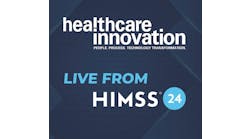Cooper University Health Care in Camden County, N.J., and Temple Health in Philadelphia serve some of the poorest neighborhoods in the country, and many of their patients come from underserved and minority communities that have been disproportionately affected by the pandemic. In recent interviews, their executives described how they are working to extend the reach of their vaccination efforts.
Tony Reed, M.D., chief medical officer at Temple Health, said that after setting up its vaccination infrastructure, his organization is starting to address the issue of people who are hesitant to get a vaccination. I asked Reed if he saw that as a public health department messaging issue or the responsibility of health systems.
“I'm kind of a little on both sides of the street,” Reed said. “I'm a family doc who has built a career in population health, so I look at it from the perspective of what are my responsibilities? I am the chief medical officer of a major inner city, underserved health system, and this is kind of a public health crisis.”
In Temple’s Center for Urban Bioethics, Reed said, there is a relatively young physician, who has her master's in urban bioethics and studies hesitancy to get care. She began a project doing qualitative research on vaccine hesitancy, and is having conversations with patients. “We have an effort ongoing here in North Philadelphia, for those who are hesitant, for those who are concerned, for those who have questions. There's an outreach program with community groups,” Reed said. The Center for Urban Bioethics is putting in a request for proposal with the city to do vaccinations out where patients are. This coming weekend, there'll be doing vaccinations at the social hall of one of the local churches. “The pastor has put out a call from the pulpit for people to be vaccinated. There is a pharmacist who's on the board there who also has an affiliation with us and who is going to help. They’re doing some vaccinations with nurses who volunteer from that congregation. We'll see how it goes. This weekend is the first time we're going to try that. If it's successful, we'll make it a recurring thing.”
Temple Health installed Epic’s scheduling application, Cadence, in a couple of weeks to get patients scheduled for vaccinations. Reed said they tried to keep the deployment minimalistic, because they wanted it to be functionally simple for their frontline workers who were going to be using the tool. “If the person to be vaccinated was already a patient of Temple and already has a patient portal account, it would pre-populate the form. If they're not, we set them up with a MyTemple account so that they get the reminders about the second dose,” he said.
Temple Health is connected to PhilaVax, the local public health department immunization registry. “That is integrated right into the patient's medical record. So we are able to do that kind of push,” Reed said. “And for those who get vaccinated at other places, or for those employees that we vaccinated, who also have an Epic chart, the vaccination data goes from the PhilaVax back into Epic, so it closes the loop. We can add a filter to say, look, that person's already been vaccinated, so don't push out an invitation to them.”
Epic says that it is supporting 100 sites running community-based mass vaccination locations across the country. These sites have the capacity to administer 300,000 vaccinations a day.
Reed said Temple hasn’t faced a shortage of doses yet as it vaccinates its own 18,000 employees and now turns to other high-priority citizens of Philadelphia. The two populations who are currently in phases 1A and 1B from the City and Philadelphia are healthcare workers and first responders and anybody who has high levels of exposure or high level of risk as well as those who have significant medical conditions. For the most part, those groups are pretty well connected to health systems. “If you're immunocompromised, or if you're on a transplant list, or have end-stage kidney disease, or have active cancer, in all likelihood, you go to one of the four or five major academic centers in Philadelphia,” he said. “We took our active patient lists, which number in the hundreds of thousands, and we have sorted them by those medical conditions, and we've added age as a medical condition. So it's a pull strategy from those lists.”
He said one challenge will be once the vaccinations open up to healthy people at younger ages. “We’re going to have to figure out how to open up a call for invites to age 50 and up without overwhelming the phone lines and the scheduling process,” Reed said. “That's the trick. That's where we're going to run into difficulty.”
Anthony Mazzarelli, M.D., co-CEO at Cooper University Health Care, said his organization is working both with the Camden County’s public health agency and Jefferson Health by extending the use of their Epic system to the mas vaccination site.
“I think having health systems work together during this time of COVID has become increasingly less unusual,” he said. “We all want to get everyone vaccinated, so when Camden County looked for help in support of their vaccination site, both Jefferson and Cooper stepped up and we were more than happy to partner with Jefferson on that. We’ve helped not only with the logistics and organization, but with our Epic tools, not just for scheduling, but for the entire workflow.”
Cooper had begun vaccinating employees weeks before the larger vaccination site opened. “We were able to do a proof of concept and look at the workflows and understand how to maximize the technologies,” Mazzarelli said. “We knew we wanted to use the front end and scheduling that was in Epic. We set it up so that it's got automatic submission of the vaccination data from Epic right to the state.”
Once the State of New Jersey opened up, essentially overnight, the number of people that qualified to get the vaccine, there was an extremely high demand. “I think we scheduled something like 35,000 people in like 24 hours,” Mazzarelli explained. “Now we've scheduled over 80,000 people and over 10,000 have already received their vaccine. But there was a real sprint in the very beginning.”
Cooper is looking at new ways to reach out and register people who may not have computers set up in their home. “We are exploring some AI and automated solutions to assist large numbers of people, especially putting in multilingual voice channels,” Mazzarelli added. “We want to scale up as quickly as possible to get shot in people's arms. It’s always about how we can get that workflow better. So we used a check-in and welcome kiosk to shorten the registration time. We got that down to less than three minutes, so our end-to-end vaccination process, on average, is about 20 minutes, including the 15 minutes where they have to sit and wait afterwards.”
Right now there are so many people in New Jersey who qualify to get vaccinated that the Camden County site is already booked out until August or September. “We’re trying to add more slots if we can get more vaccine and we know that the state's trying to get more. We’re now at 1,000 vaccinations per day, and we think we can go up to maybe 2,500 a day. The bottleneck is on the supply side right now,” Mazzarelli said. “That being said, we do want to make sure we get to harder-to-reach groups. So we're currently planning some pop-up vaccination sites in the City of Camden in communities that are a bit resistant to the vaccine. We're working with the State of New Jersey to plan those now.”


